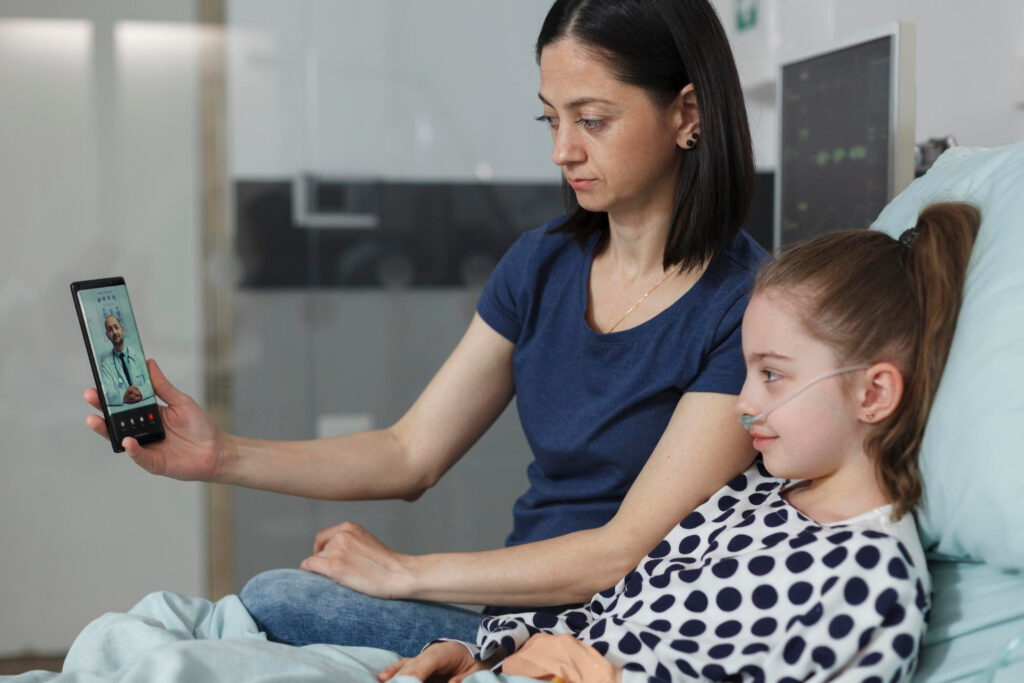In the ever-evolving landscape of healthcare, telepsychiatry has emerged as a revolutionary force, reshaping the way mental health services are delivered. The convergence of technology and psychiatry has paved the way for a more accessible, convenient, and effective approach to mental healthcare. Let’s explore why telepsychiatry is increasingly being recognized as a superior alternative to traditional methods.
1. Accessibility Beyond Boundaries
One of the most significant advantages of telepsychiatry is its ability to transcend geographical barriers. Traditional mental health services often face limitations in reaching individuals in remote or underserved areas. Telepsychiatry eliminates these constraints, allowing individuals to connect with mental health professionals from the comfort of their homes. This increased accessibility ensures that those who may have otherwise struggled to access psychiatric care can now do so conveniently, leading to early intervention and improved mental health outcomes.
2. Convenience Redefined
Traditional psychiatry often involves scheduling appointments, commuting to a physical location, and dealing with potential wait times. Telepsychiatry, on the other hand, offers unparalleled convenience. Individuals can schedule virtual appointments at times that suit their schedules, eliminating the need for time-consuming travel and reducing disruptions to daily life. This convenience not only increases patient engagement but also encourages regular and consistent interaction with mental health professionals, contributing to more effective treatment.
3. Reducing Stigma Through Privacy
Telepsychiatry addresses one of the significant barriers to seeking mental health support – stigma. The virtual nature of telepsychiatry allows individuals to engage with mental health professionals in a private and discreet environment. This increased privacy reduces the fear of judgment or social repercussions associated with traditional face-to-face interactions. As a result, individuals may feel more comfortable discussing their mental health concerns, leading to more open and honest communication between patients and psychiatrists.
4. Enhanced Continuity of Care
Telepsychiatry promotes seamless and continuous mental health care. Through virtual platforms, individuals can maintain regular contact with their psychiatrists, fostering a stronger therapeutic relationship. This continuous connection allows for ongoing support, monitoring, and timely adjustments to treatment plans. For individuals managing chronic mental health conditions, telepsychiatry ensures that they receive the necessary care and intervention without the disruptions that may arise from missed in-person appointments.
5. Access to Specialized Care
In many regions, access to specialized psychiatric care may be limited. Telepsychiatry addresses this challenge by connecting individuals with specialized professionals regardless of their physical location. Whether seeking treatment for a specific disorder or requiring the expertise of a particular psychiatrist, telepsychiatry allows individuals to access a broader range of mental health services. This ensures that individuals receive specialized care tailored to their unique needs, leading to more effective and personalized treatment.
6. Efficient Use of Technology for Holistic Care
Telepsychiatry integrates seamlessly with technology, offering a holistic approach to mental health care. Many telepsychiatry platforms provide additional features such as secure messaging, virtual support groups, and digital tools for self-help. These features enhance the overall mental health care experience, empowering individuals with resources and support beyond traditional therapy sessions. The integration of technology contributes to a more comprehensive and proactive approach to mental health.
7. Cost-Effective Solution
Telepsychiatry can be a cost-effective solution for both patients and healthcare systems. Virtual consultations eliminate the need for extensive infrastructure associated with traditional psychiatric settings, reducing overhead costs. For patients, telepsychiatry minimizes expenses related to travel, accommodation, and time off work. The cost-effectiveness of telepsychiatry makes mental health care more accessible to a broader population, ensuring that financial considerations do not become a barrier to seeking help.
Conclusion
The evolution of mental healthcare through telepsychiatry represents a transformative shift toward a more accessible, convenient, and patient-centered approach. The advantages of increased accessibility, convenience, privacy, continuity of care, access to specialized services, integration with technology, and cost-effectiveness underscore the superiority of telepsychiatry over traditional methods. As technology continues to advance, the potential for telepsychiatry to further improve mental health outcomes is vast. Embracing telepsychiatry not only breaks down barriers to mental health support but also propels the field toward a future where mental well-being is prioritized and accessible to all. The synergy between technology and psychiatry is reshaping the narrative of mental healthcare, offering hope and healing to individuals in need.






